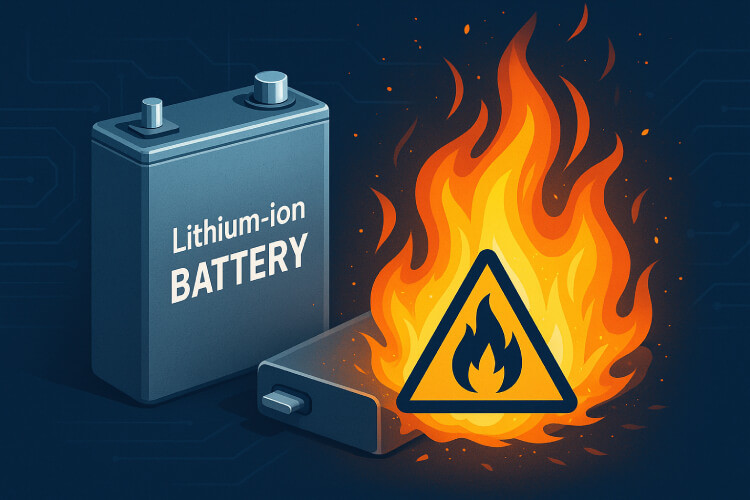Local News
Fire Prevention Week, October 5-11, to address lithium-ion battery risks and ways to minimize them

It’s Fire prevention week and the theme of this years campaign is Lithium-Ion Batteries in Your Home.
Most of the electronics in our homes like smartphones, tablets, power and lawn tools, laptops, e-cigarettes, headphones, and toys, are powered by lithium-ion batteries. If not used correctly or damaged, lithium-ion batteries can overheat and start a fire or explode. In response to these risks, the National Fire Protection Association, the official sponsor of Fire Prevention Week says
Lithium-ion batteries are powerful, convenient, and they’re just about everywhere, and Making sure the public knows how to use them safely is critical to minimizing the potential risks they pose.
According to the group, devices powered by lithium-ion batteries are largely used without incident. However, reports of fires and explosions involving lithium-ion batteries have been on the rise in recent years, reinforcing the importance of better educating the public about how to use, handle, and recycle them safely.
The group says when buying a product that uses a lithium-ion battery, take time to research it. Look for a stamp from a nationally recognized testing lab on the packaging and product, which means that it meets established safety standards.
Some products sold online and in stores may not meet safety standards and could increase the risk of fire.
Always use the cables that come with the product to charge it. Also, charge the device in accordance with the manufacturer’s instructions.
If you need a new charger, buy one from the manufacturer or one that the manufacturer has approved.
Charge your device on a hard surface. Don’t charge it under a pillow, on a bed, or on a couch. This could cause a fire as batteries may get hot as they charge.
Don’t overcharge your device. Unplug it or remove the battery when it’s fully charged.
And don’t throw lithium-ion batteries in the trash or regular recycling bins. Many garbage truck use compacters to crush garbage, which can damage batteries, causing them to catch fire.
Instead, Recycling your device or battery at a safe battery recycling location is the best way to dispose of them. You can visit the website www.call2recycle.org to find a recycling spot near you.


